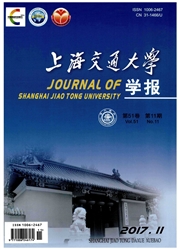

 中文摘要:
中文摘要:
研究了由一个零售商和一个供应商构成的二级生产供应链.后者为前者提供定制化的产品,且产品需求是随机的.由于提前期较长,供应商需要在零售商确定订单前建立产能.假设供应商承担所有产能投资,则其是否能够建立满足零售商需求的产能却是个未知数.通过计算供应商和零售商双方在批发价格契约和产能投资分担契约下的最优利润,并相比较批发价格契约,在分散决策供应链的产能投资分担契约下,双方的利润得到了提高,并且供应商也因此愿意建立更多的产能.最后,通过数值分析,证明了在产能分担契约下,零售商和供应商的最优决策及最大利润的变化关系.
 英文摘要:
英文摘要:
This paper studied a two-level supply chain with one supplier and one retailer.The retailer sources products from the supplier and sells them to the end customers,and customer demand is uncertain.Due to the long lead time,the supplier needs to build capacity before receiving orders from the retailer.If the supplier assumes all the cost of building enough capacity to meet demand while the retailer assumes no cost,it is not clear that the supplier will build enough capacity.Motivated by the observations,we consider two types of contract relationship between the supplier and the retailer: wholesale price only contract and capacity cost sharing contracts.We first characterize the optimal decisions of the supplier's and the retailer's under two cases.We then show that the supplier is willing to build more capacity under the cost sharing contract and such a contract increases the expected profits of the supplier and the retailer.Finally,through a numerical study,we demonstrate how the retailer's and the supplier's optimal decisions and their resulting expected profits are affected by the specific terms of the cost sharing contracts.
 同期刊论文项目
同期刊论文项目
 同项目期刊论文
同项目期刊论文
 期刊信息
期刊信息
